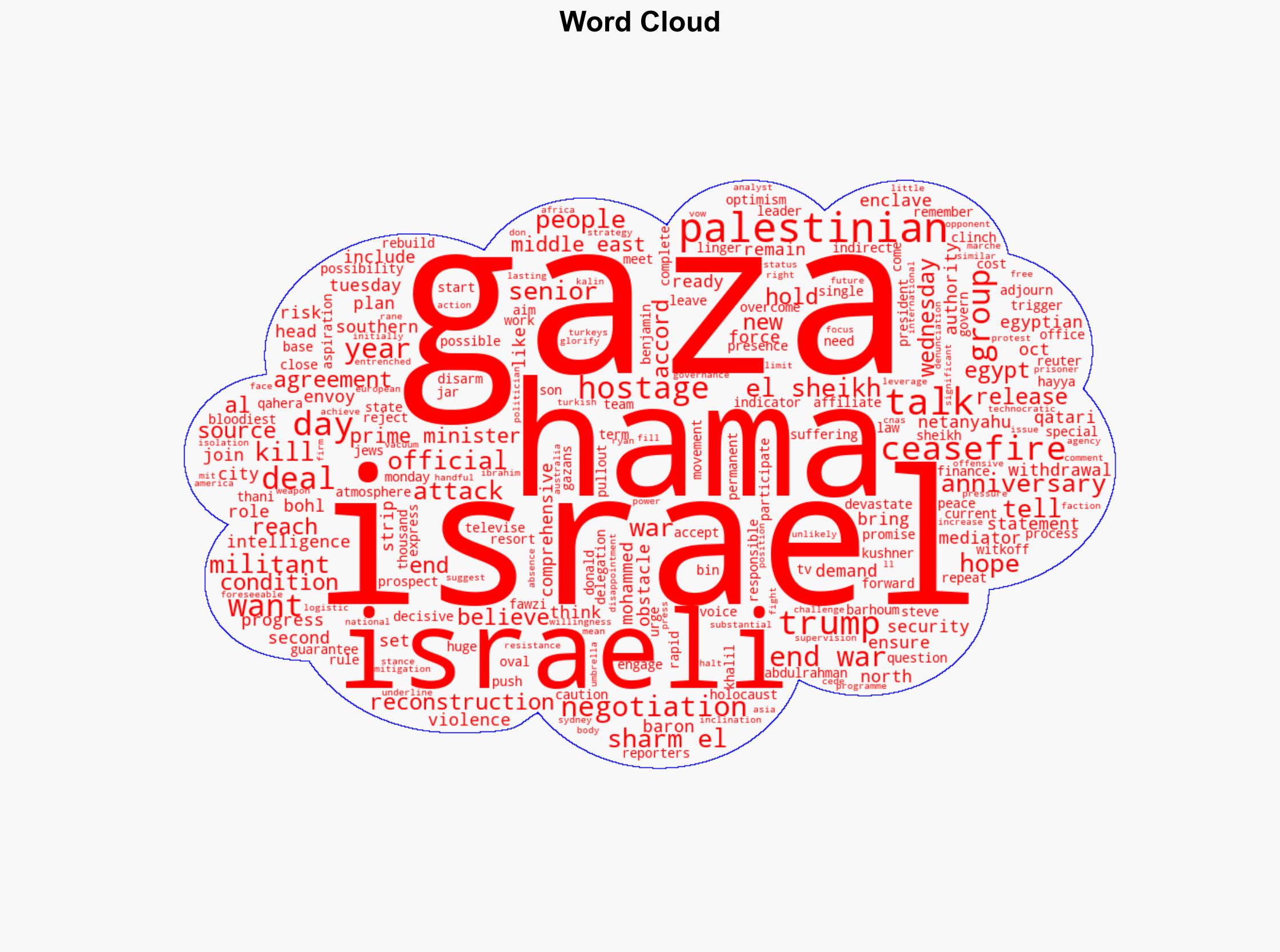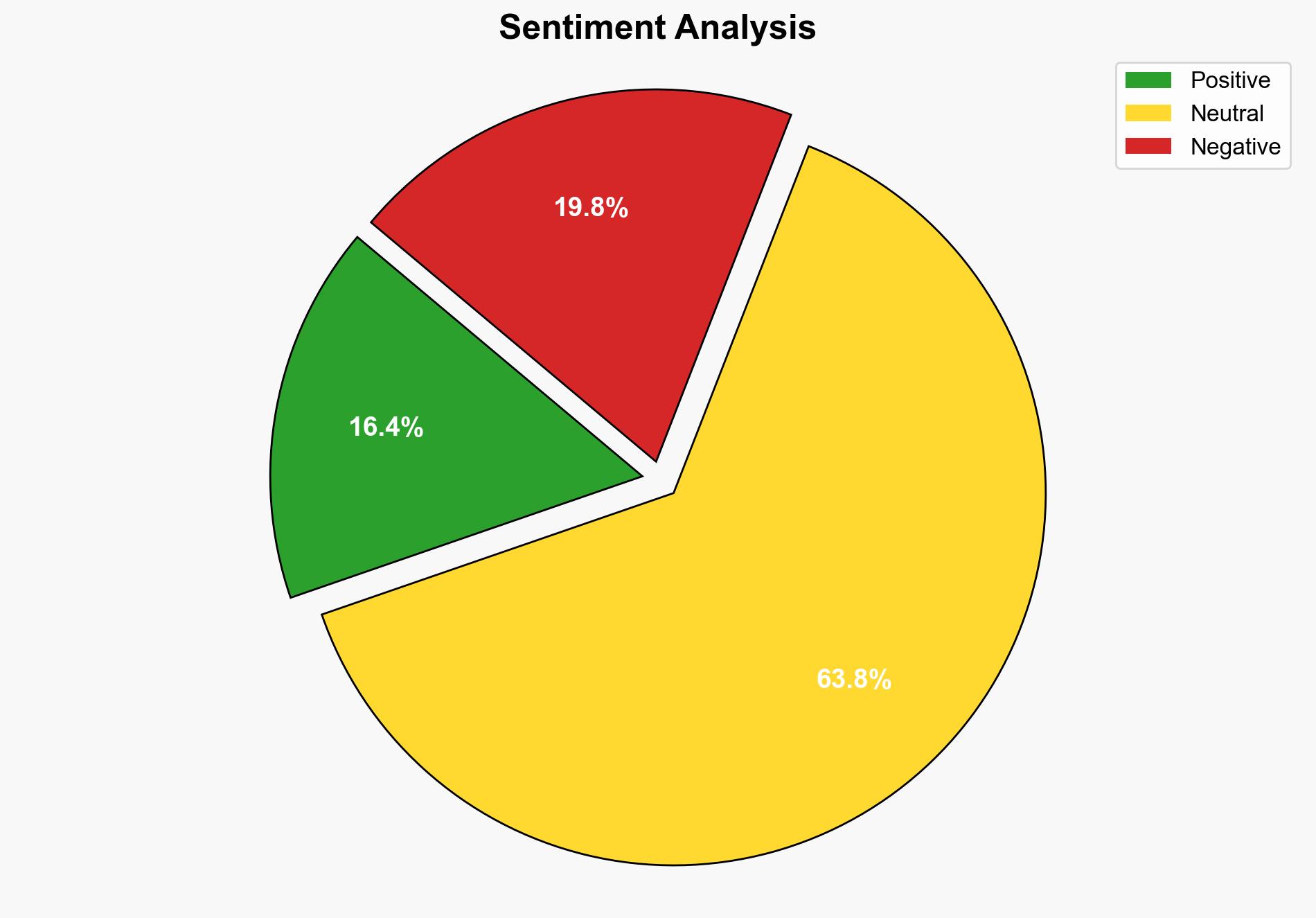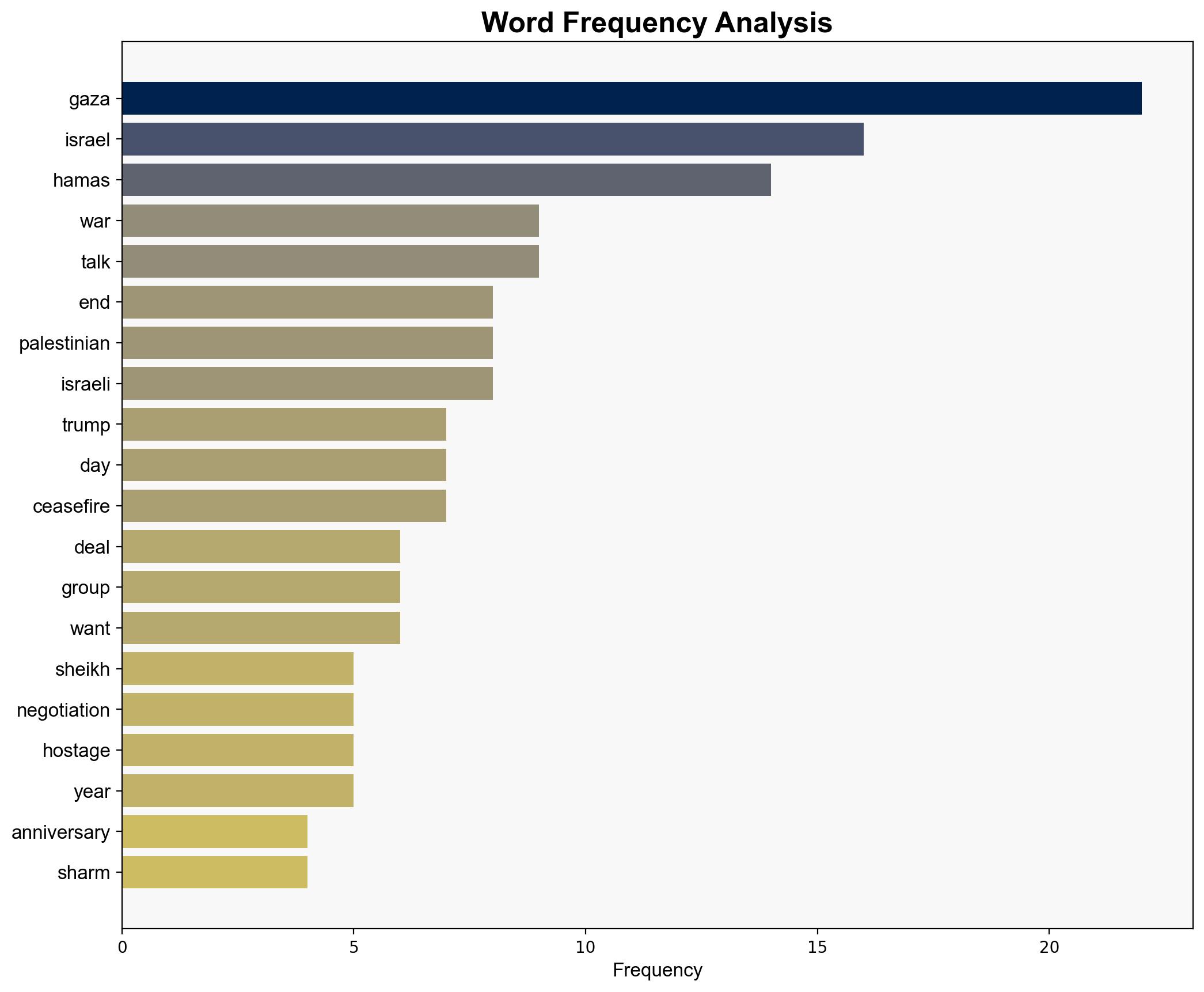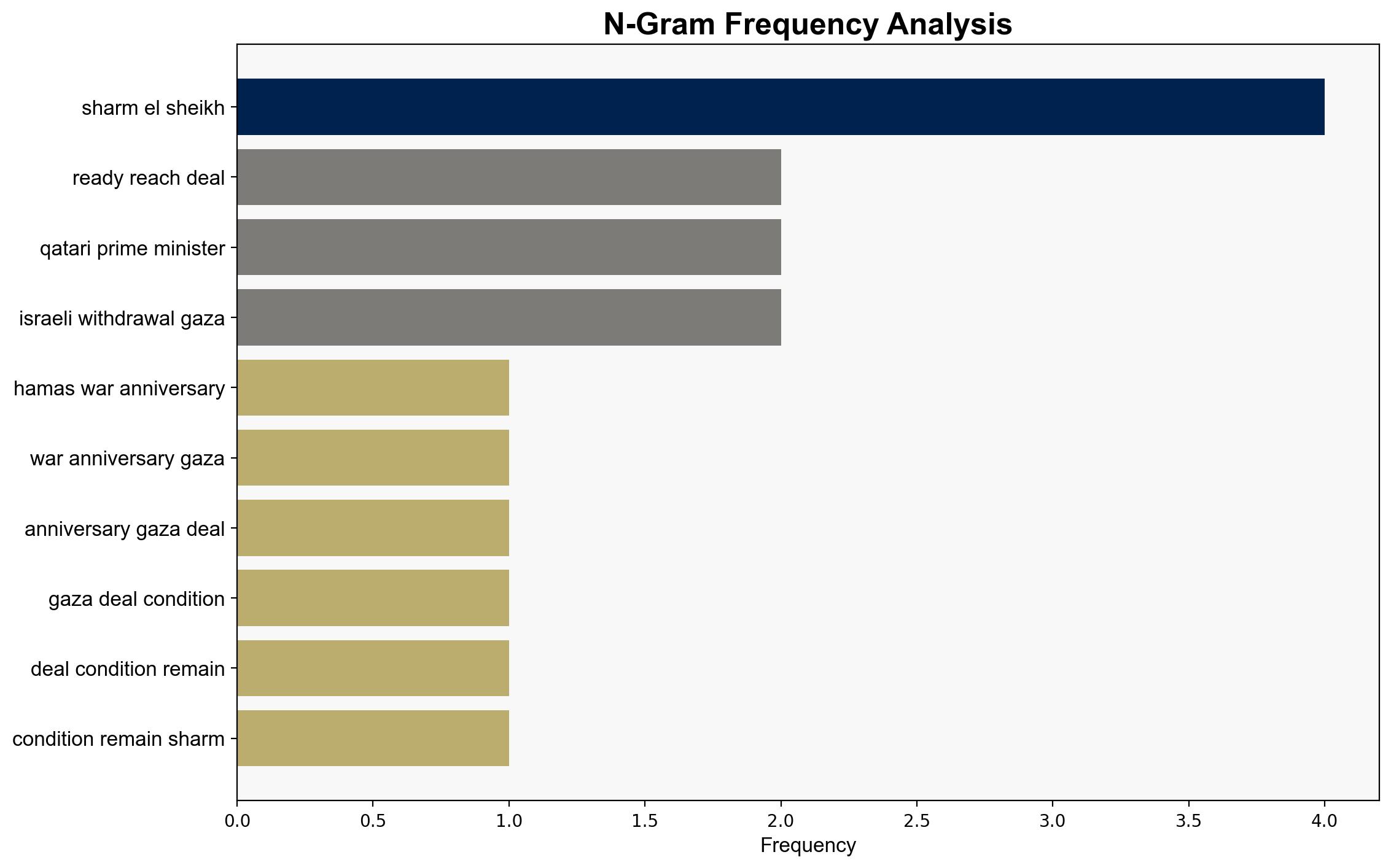Israel marks Oct 7 anniversary as talks held to end Gaza war – CNA
Published on: 2025-10-07
Intelligence Report: Israel marks Oct 7 anniversary as talks held to end Gaza war – CNA
1. BLUF (Bottom Line Up Front)
The most supported hypothesis is that the ongoing negotiations are unlikely to result in a comprehensive ceasefire or lasting peace agreement due to entrenched positions and limited external pressure on Israel. Confidence in this assessment is moderate. Recommended action includes diplomatic engagement to facilitate incremental progress, such as temporary ceasefires or humanitarian aid agreements, while preparing for potential escalation.
2. Competing Hypotheses
1. **Hypothesis A**: The negotiations will lead to a comprehensive ceasefire and a framework for lasting peace in Gaza. This is supported by the presence of high-level mediators and the expressed willingness of Hamas to negotiate.
2. **Hypothesis B**: The negotiations will not result in a comprehensive ceasefire due to entrenched positions, particularly Israel’s demand for Hamas disarmament and Hamas’s insistence on Israeli withdrawal. This is supported by historical patterns of failed negotiations and current political dynamics.
Using ACH 2.0, Hypothesis B is better supported due to the lack of substantial leverage on Israel and the historical context of similar negotiations failing to achieve lasting peace.
3. Key Assumptions and Red Flags
– **Assumptions**: It is assumed that both parties are negotiating in good faith and that external mediators can influence outcomes.
– **Red Flags**: The lack of explicit commitments from key stakeholders, such as the U.S. and Israel, to alter their positions significantly. The absence of detailed plans for post-conflict reconstruction and governance in Gaza.
– **Blind Spots**: Potential internal dissent within Hamas or Israeli political factions that could derail negotiations.
4. Implications and Strategic Risks
– **Escalation Risks**: Failure to reach an agreement could lead to renewed hostilities, increasing regional instability and humanitarian crises.
– **Geopolitical Dimensions**: The involvement of multiple countries (Qatar, Egypt, Turkey) indicates broader regional stakes, potentially affecting alliances and power balances.
– **Economic Impact**: Prolonged conflict could disrupt regional trade and impact global markets, particularly energy supplies.
5. Recommendations and Outlook
- Encourage incremental agreements, such as temporary ceasefires or humanitarian corridors, to build trust and reduce immediate tensions.
- Engage regional powers to apply coordinated diplomatic pressure on both parties.
- Scenario Projections:
- Best Case: A temporary ceasefire is achieved, leading to gradual de-escalation.
- Worst Case: Talks collapse, leading to intensified conflict and regional instability.
- Most Likely: Limited progress with periodic ceasefires but no comprehensive peace agreement.
6. Key Individuals and Entities
– Donald Trump
– Jared Kushner
– Sheikh Mohammed bin Abdulrahman Al Thani
– Khalil al-Hayya
– Benjamin Netanyahu
– Ibrahim Kalin
– Ryan Bohl
7. Thematic Tags
national security threats, regional focus, geopolitical dynamics, conflict resolution




